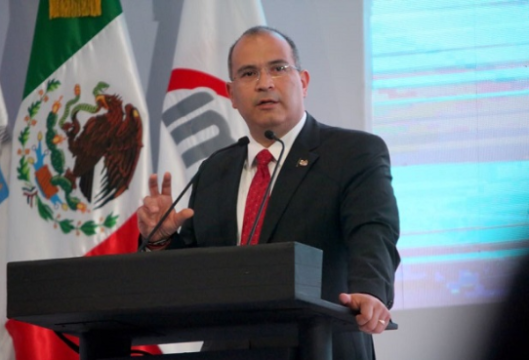
Will Pemex’s New Oil Finds Reverse Output Declines?
Will Pemex’s most recent oil discoveries be enough to reverse the country’s output declines?
Will Pemex’s most recent oil discoveries be enough to reverse the country’s output declines?
Even if Juan Guaido or another opposition figure finally takes the reins and starts fixing the oil sector in Venezuela, it will take years before oil exports can provide the economic boost needed to pull the nation out of the morass. Venezuela’s oil industry has been severely damaged, and there are questions about the long-term economic viability of its oil fields. Venezuelans will likely be disappointed with the pace of the economic turnaround under any new government—a risk that poses a real threat to political stability. Expectations ought to be tempered.
How does USMCA, the new NAFTA deal, affect the energy sector? What are the biggest changes? Will it boost investment and cooperation?
Could Venezuela’s oil production decline even more steeply? Three evolving developments will largely determine the answer: whether creditors can seize assets in compensation for default, whether large numbers of oil workers continue to abandon their jobs, and whether the United States and other countries impose additional sanctions.
President-elect Andrés Manuel López Obrador can capitalize on Mexico’s enormous renewable energy potential and make Mexico a leader in the fight against climate change. Although his platform offers some promising proposals, he will have to maneuver through several major obstacles.
The Brazilian oil & gas industry is going through its “largest transformation ever,” said Décio Oddone, Director-General for the Brazilian National Petroleum, Natural Gas and Biofuels Agency (ANP) at an event organized by the Inter-American Dialogue on June 28th.
Improving grid management, expanding fiscal incentives for renewable technologies, and improving the land consultation process will open the door to the large Mexican renewable energy market.
If the region increases renewables to 80% of the electricity matrix and expands integration, countries can save billions of dollars in investments, avoid blackouts and reduce their greenhouse gas emissions, argue Lisa Viscidi and Ariel Yépez.
On March 7th, the Inter-American Dialogue and CAF-Development Bank of Latin America organized a roundtable with a diverse group of experts to provide input for a forthcoming report on US investment in Latin American energy.
2019 has been a tumultuous year for South America. In recent months, mass protests have swept across several countries, including major oil and gas producers Bolivia, Ecuador, Peru, and Colombia. Continued political and social turbulence will likely contribute to stagnant oil and gas production growth in these countries. Conversely, Brazil and Guyana are on track to become the region’s largest sources of supply growth.
AMLO’s skepticism of private investment, the cancellation of generation and transmission auctions, and the return to state-led electricity development through bolstering of the CFE threaten to squander Mexico’s renewable potential and drag its clean development efforts backwards.
In a wide-ranging panel about current events in energy, Lisa Viscidi commented on the shift in the US energy trade balance and its effects on foreign policy, Chinese financing for foreign energy projects, the importance of upgrading transmission lines for expanding renewable power generation, and how the Green New Deal attempts to reframe the discussion on climate change in the US.
Regulators and private companies will continue to play important roles in the development of Mexico’s energy resources despite President Andrés Manuel López Obrador’s focus on strengthening state-owned companies and enhancing “energy sovereignty” by reducing dependence on energy imports from the United States. This was the key message from speakers at “La nueva política energética de México,” an Inter-American Dialogue event in Mexico City.
Just as Pemex bonds suffered a downgrading to junk status by Fitch, Lisa Viscidi, director of the Energy Program, sat down with Nathaniel Parish Flannery of Forbes to discuss the state of Mexico’s energy sector, including oil and gas, regulators, and renewables, seven months into the AMLO administration.
Revitalizing Brazil’s energy sector will be key to Jair Bolsonaro’s success as president – but so far, he’s had mixed results when it comes to getting reforms through Congress. Unless Bolsonaro learns to work with legislators and ease turbulence within his government, Brazil’s missing energy reforms will continue to threaten its economy, and its politics.

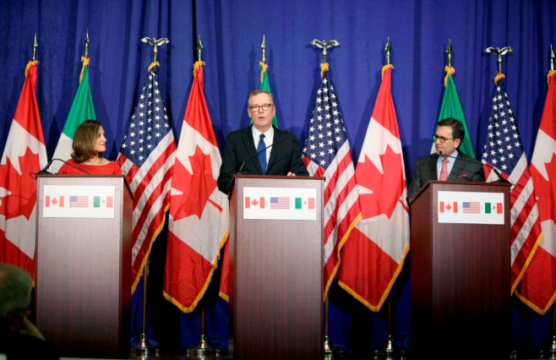
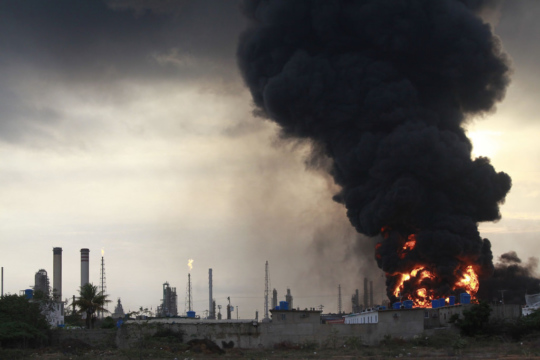

 Video
Video
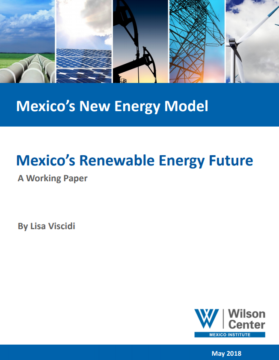
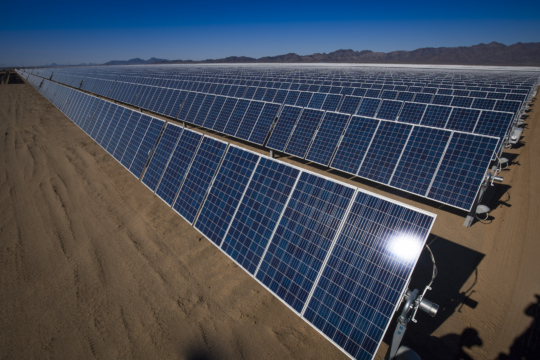


 Video
Video
 Video
Video


